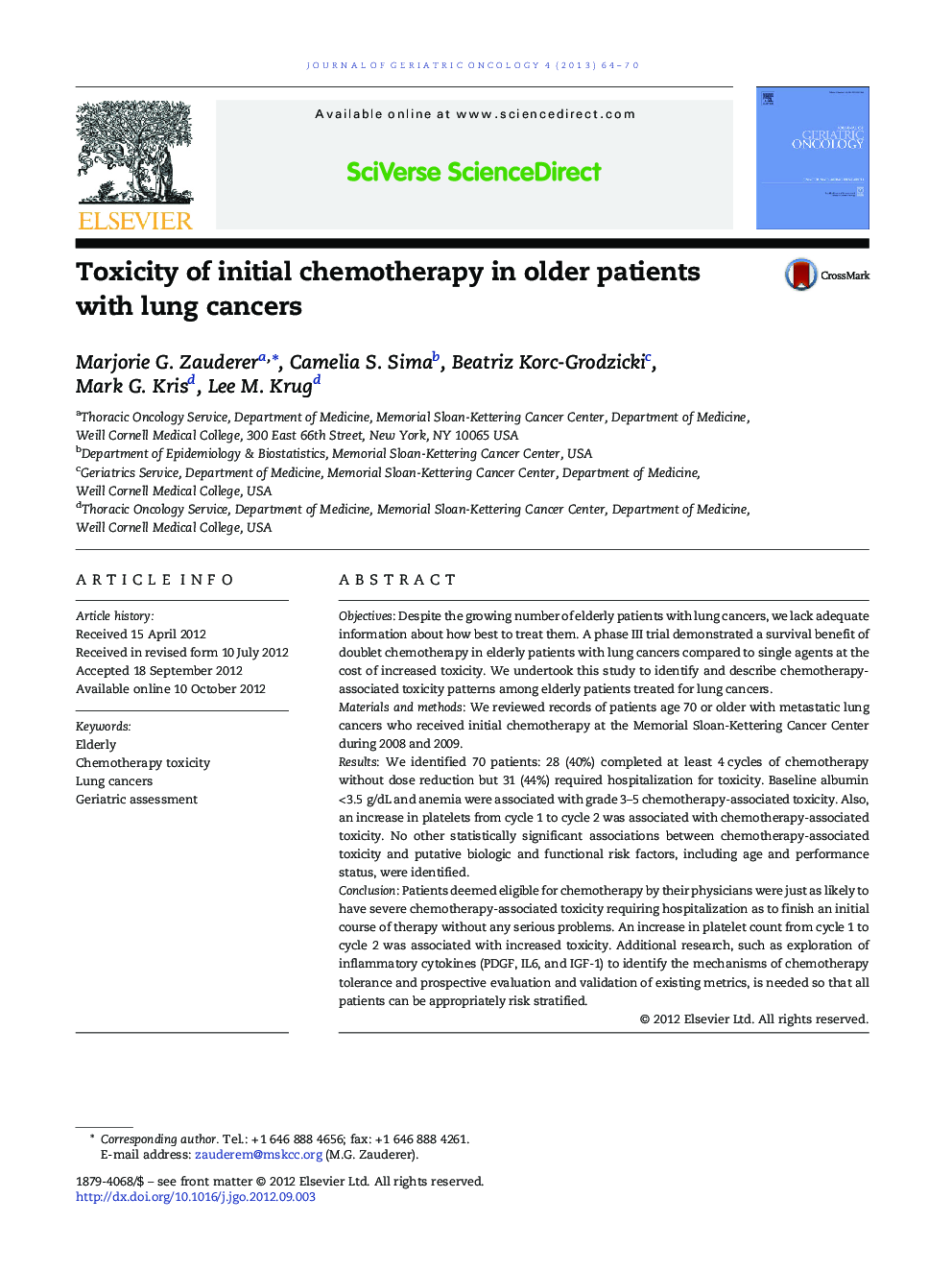| Article ID | Journal | Published Year | Pages | File Type |
|---|---|---|---|---|
| 1912904 | Journal of Geriatric Oncology | 2013 | 7 Pages |
ObjectivesDespite the growing number of elderly patients with lung cancers, we lack adequate information about how best to treat them. A phase III trial demonstrated a survival benefit of doublet chemotherapy in elderly patients with lung cancers compared to single agents at the cost of increased toxicity. We undertook this study to identify and describe chemotherapy-associated toxicity patterns among elderly patients treated for lung cancers.Materials and methodsWe reviewed records of patients age 70 or older with metastatic lung cancers who received initial chemotherapy at the Memorial Sloan-Kettering Cancer Center during 2008 and 2009.ResultsWe identified 70 patients: 28 (40%) completed at least 4 cycles of chemotherapy without dose reduction but 31 (44%) required hospitalization for toxicity. Baseline albumin < 3.5 g/dL and anemia were associated with grade 3–5 chemotherapy-associated toxicity. Also, an increase in platelets from cycle 1 to cycle 2 was associated with chemotherapy-associated toxicity. No other statistically significant associations between chemotherapy-associated toxicity and putative biologic and functional risk factors, including age and performance status, were identified.ConclusionPatients deemed eligible for chemotherapy by their physicians were just as likely to have severe chemotherapy-associated toxicity requiring hospitalization as to finish an initial course of therapy without any serious problems. An increase in platelet count from cycle 1 to cycle 2 was associated with increased toxicity. Additional research, such as exploration of inflammatory cytokines (PDGF, IL6, and IGF-1) to identify the mechanisms of chemotherapy tolerance and prospective evaluation and validation of existing metrics, is needed so that all patients can be appropriately risk stratified.
